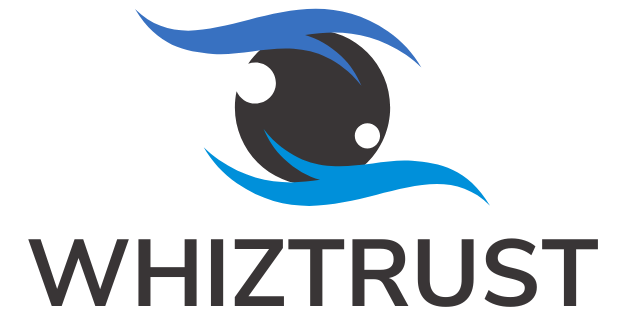In today’s fast-paced business world, staying ahead of the competition is no longer just a goal; it’s a necessity. Enter market intelligence software solutions—the secret weapon for savvy businesses looking to outsmart their rivals. Imagine having a crystal ball that reveals market trends, consumer behavior, and competitor strategies. Sounds like magic, right? Well, it’s not. It’s just good software doing its job.
These tools sift through mountains of data faster than a caffeinated squirrel, providing insights that can transform decision-making. Whether it’s spotting emerging trends or fine-tuning marketing strategies, market intelligence software is like having a personal assistant who never sleeps. With the right solution, businesses can make informed decisions that lead to growth and success. So why not embrace the future and let technology do the heavy lifting while you focus on what you do best?
Table of Contents
ToggleOverview of Market Intelligence Software Solutions
Market intelligence software solutions provide businesses with tools to analyze data on market trends and consumer behaviors. These solutions aggregate data from various sources, enabling companies to uncover insights that inform marketing strategies and product development. Business leaders rely on this software to track competitor activities and performance metrics, which helps shape strategic initiatives.
Data visualization features within these software programs present complex information in accessible formats, simplifying decision-making processes. Some popular types of market intelligence solutions include customer relationship management tools, social media analytics platforms, and business intelligence software. Each serves a unique purpose, yet all contribute to a comprehensive understanding of the market landscape.
Users can adapt these solutions to meet specific organizational needs. Many platforms offer customizable dashboards that highlight key performance indicators relevant to each business. Integration with existing tools enhances usability, allowing teams to leverage current ecosystems while maximizing efficiency.
Reliable market intelligence software also incorporates predictive analytics. These features forecast trends based on historical data, enabling proactive rather than reactive strategies. Organizations implementing such software can stay ahead of market fluctuations and seize opportunities promptly.
Privacy and compliance features are essential aspects within this software category. Ensuring that data handling aligns with regulations mitigates risks for companies relying on sensitive information. Businesses focused on ethical data practices position themselves favorably in the eyes of consumers, fostering trust and loyalty.
Investing in market intelligence software solutions equips businesses with the insights necessary to thrive in competitive environments. Decision-makers who embrace these tools can enhance their overall strategic execution and facilitate sustained growth.
Key Features of Market Intelligence Software

Market intelligence software solutions offer various features designed to enhance decision-making processes and improve business strategies.
Data Collection and Analysis
Data collection and analysis stand as foundational elements. These tools aggregate information from multiple sources such as surveys, social media, and industry reports. They harness advanced algorithms to filter through vast amounts of data, identifying relevant trends and patterns. Companies gain insights about consumer preferences and market movements efficiently. The ability to conduct real-time analysis allows businesses to stay ahead, making adjustments promptly to meet market dynamics. Accurate data enriches strategic planning, driving informed decision-making within organizations.
Reporting and Visualization Tools
Reporting and visualization tools facilitate comprehension of complex data sets. Clear and engaging visual formats, including charts and graphs, transform raw data into actionable insights. These features enable business leaders to gauge performance metrics quickly and monitor key performance indicators effectively. Customizable dashboards provide tailored views, showcasing information pertinent to specific organizational needs. Users can generate reports effortlessly, sharing information across teams to foster collaboration. Delivering insights through user-friendly interfaces enhances accessibility and supports data-driven decisions.
Benefits of Implementing Market Intelligence Software
Market intelligence software significantly enhances business strategies by providing valuable insights. Companies experience improved decision-making processes.
Enhanced Decision Making
Enhanced decision-making occurs when businesses leverage real-time data and analytics. Companies identify emerging market trends and consumer preferences quickly. Improved accuracy in forecasting supports strategic initiatives. Tools such as data visualization simplify complex data sets, making it easier for teams to comprehend insights. Collaboration becomes seamless through customizable dashboards tailored to each organization’s needs. Decisions based on solid data mitigate risks and optimize resource allocation effectively.
Competitive Analysis
Competitive analysis benefits greatly from market intelligence software. Businesses monitor competitor activities in real-time, gaining insights into their strategies and performance metrics. This capability allows teams to identify gaps in the market. Awareness of rivals’ strengths and weaknesses informs pricing strategies and product development. Integrating various data sources offers a comprehensive view of industry dynamics. By understanding competitive landscapes, businesses remain agile and ready to adapt their strategies.
Popular Market Intelligence Software Solutions
Many businesses leverage various market intelligence software solutions to gain insights into consumer behavior and market trends. Here’s a look at a couple of popular options.
Solution A
Tableau stands out as a premier business intelligence tool that excels in data visualization. With its robust features, it integrates data from multiple sources, allowing users to create interactive dashboards. Users access real-time analytics to spot trends and make informed decisions promptly. Customization options ensure that organizations can tailor dashboards to display key performance indicators that meet their specific needs. The drag-and-drop interface simplifies the process, enabling both technical and non-technical users to generate reports easily. Tableau’s sharing capabilities also promote collaboration among teams, enhancing overall strategy execution.
Solution B
Semrush acts as a comprehensive digital marketing tool that enhances competitive analysis. Through its extensive data collection abilities, users can closely monitor competitor activities across various channels. Features include keyword tracking, site audits, and traffic analytics, providing valuable insights into effective marketing tactics. Customizable reports help businesses track their progress and compare performance against competitors. The tool enables marketers to refine their strategies based on verified data, ensuring that campaigns remain effective and relevant. Semrush fosters data-driven decision-making by providing a detailed analysis of market dynamics, positioning companies for success.
Choosing the Right Market Intelligence Software
Choosing market intelligence software hinges on understanding specific business needs and evaluating vendor options effectively. Each organization’s requirements can significantly vary.
Assessing Business Needs
Identifying key objectives is crucial for effective software selection. Businesses should prioritize the data types most relevant to their operations. An organization focused on competitor analysis will need different features compared to one seeking customer sentiment. Customizable reporting tools and real-time analytics are essential for decision-making. Teams should consider user-friendliness and necessary integrations with existing systems. Cost-effectiveness also plays a significant role, as businesses often require scalable solutions that fit evolving needs. Prioritizing these factors leads to a more tailored solution.
Evaluating Vendor Options
Exploring various vendors helps highlight the best fit for specific needs. Each vendor’s reputation should be assessed based on customer reviews and case studies. A comprehensive demo can reveal how well the software aligns with organizational objectives. Support services and training provisions must also be evaluated for ongoing success. Vendors offering customizable features tend to provide greater adaptability as businesses grow. Finally, consider data privacy and compliance capabilities, ensuring the chosen software adheres to industry regulations. Selecting the right vendor streamlines implementation and maximizes ROIs.
Investing in market intelligence software solutions is crucial for businesses aiming to thrive in a competitive landscape. These tools empower organizations to make data-driven decisions by providing real-time insights into market trends and consumer behavior. By utilizing features like predictive analytics and customizable dashboards, companies can adapt their strategies effectively.
Furthermore, understanding specific business needs when selecting the right software ensures that organizations maximize their investment. With the right market intelligence tools in place, businesses can enhance their strategic execution and foster sustained growth in an ever-evolving market. Embracing these solutions is not just beneficial; it’s essential for long-term success.


